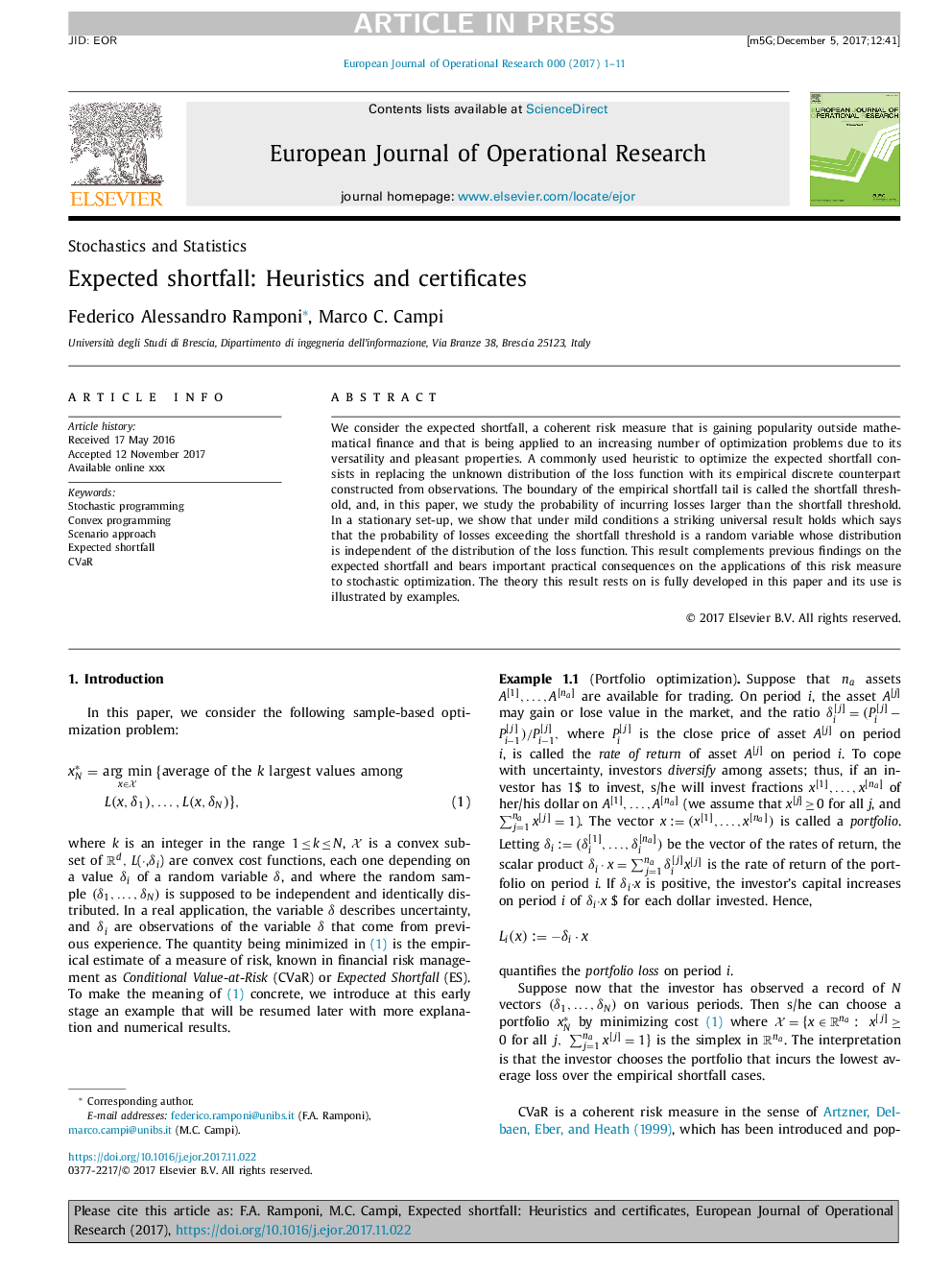ترجمه فارسی عنوان مقاله
کمبود انتظار: اکتشافات و گواهینامه ها
عنوان انگلیسی
Expected shortfall: Heuristics and certificates
| کد مقاله | سال انتشار | تعداد صفحات مقاله انگلیسی |
|---|---|---|
| 161458 | 2018 | 11 صفحه PDF |
منبع

Publisher : Elsevier - Science Direct (الزویر - ساینس دایرکت)
Journal : European Journal of Operational Research, Volume 267, Issue 3, 16 June 2018, Pages 1003-1013
ترجمه چکیده
ما ضعف انتظار می رود، یک معیار ریسکی منسجم است که محبوبیت خارج از ریاست امور مالی را به دست می آورد و این امر به دلیل تعداد زیادی از مشکلات بهینه سازی به دلیل تطبیق پذیری و خواص دلپذیر آن اعمال می شود. یک اکتشافی رایج برای بهینه سازی کمبود انتظار می رود که جایگزین توزیع ناشناخته از عملکرد تلفات با همتای گسسته تجربی آن است که از مشاهدات ساخته شده است. مرز دم کمبود تجربی آستانه کمبود نامیده می شود و در این مقاله احتمال وقوع زیان های بزرگتر از حد آستانه را بررسی می کنیم. در یک ایستگاه ثابت، ما نشان می دهیم که در شرایط خفیف یک نتیجه قابل توجه جهانی وجود دارد که می گوید احتمال خرابی بیش از آستانه ی کمبود، یک متغیر تصادفی است که توزیع آن مستقل از توزیع تابع افت است. این نتیجه تکمیل یافته های قبلی در مورد کمبود انتظار می رود و عواقب عملی مهم را در برنامه های این اندازه گیری ریسک به بهینه سازی تصادفی می رساند. تئوری این نتیجه بر این است که به طور کامل در این مقاله توسعه یافته است و استفاده از آن به صورت مثال نشان داده شده است.

